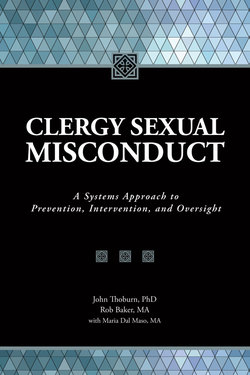Читать книгу Clergy Sexual Misconduct - John Thoburn Thoburn - Страница 11
На сайте Литреса книга снята с продажи.
Interpersonal Context
ОглавлениеThe contextual elements of kingship during the early and midlife of Israel reflected a culture of insecurity mirrored in the individual lives of the kings themselves. The reality is that David, a young shepherd, just wanted to be loved by Saul but never felt the security of acceptance by him. David tried the next best thing, marrying the king’s daughter, Michal, who had been given to him under false pretenses, then taken away from him by an increasingly jealous and erratic Saul and given to Palti, a rather pathetic figure. When David became king, he demanded that Michal be returned to him, but she scorned him and only reinforced his feelings of inferiority (2 Samuel 6:15–20). This taking of another man’s woman would be repeated in a kind of compulsive repetition when David took Bathsheba from her husband Uriah. Though Saul’s son, Jonathan, was happy to oblige David with unconditional acceptance, it was Saul’s father-love that David really wanted, never really got, and what led him to try repeatedly to prove himself worthy. The irony is that every attempt David made to win the king’s love only alienated him further, tapping into Saul’s own sense of inferiority as he merely slew his thousands while David slew his ten thousands (1 Samuel 18:7). Those who never obtain the love they seek tend to fall into a desperate striving for what they cannot have; in seeking to procure their sense of value through others, their sense of unworthiness often just becomes reinforced.
Because we live in relational environments, the currency that governs those environments is emotion. But people, including pastors, tend to grapple awkwardly with the emotional roller coaster of compulsion, continuing to repeat the same relational dynamics. They continue with the same compulsive behaviors, hope for different, more emotionally satisfying outcomes, but generally achieve the same barren results. Furthermore, people tend to reenact the emotional climate of childhood in their contemporary relationships, making it easy to understand how emotionally charged marriage, family, and congregational relationships can become (Nichols, 1987). Marriage is the primary place where people reenact scenarios from childhood. Michal at first found David noble because of his heroism. However, when David ascended to the throne and reclaimed Michal, she considered him brutish and ignoble, traits that David probably feared about himself. The result was marital discord that left him open to an affair.
Marital conflict and lack of marital intimacy are highly correlated with sexual misconduct among pastors. In a scientific survey, 41 percent of pastors who acted out sexually acknowledged marital dissatisfaction, and 75 percent of pastors who had marital difficulties of five to twenty years’ duration were at risk for sexual misconduct (Johnston, 1996). Difficulties in the marriage are never a justification for sexual acting out behaviors on the part of clergy. The reality is that the pastoral marriage is a fishbowl where the couple acts out their marriage in front of the congregation. Eighty percent of pastors feel that the ministry is a hardship on their families. If a couple cannot have an emotional intimacy that is naked and unashamed, they often feel forced to hide that fact from their congregation. Thus, the clergy person's failure to address the festering discord in his marriage can explode in the crisis of misconduct. (See chapters 7–10 for issues relating to marriage and sexual misconduct.)
The personal consequences for David and Bathsheba were deadly (the death of their child for the death of Uriah), but the corporate consequences for Israel were catastrophic. As a direct result of David’s acts, rebellion broke out in the land. Absalom, the handpicked successor to the throne, was a dynamic and charismatic individual—making him exactly the wrong person to follow after David. He continued the corruption that David had started with avarice and pride. In the end, he and his rebellion were put down at great cost to everyone.
Churches themselves can be petri dishes that breed dysfunction. Steinke (2006) has noted that congregations can carry viruses of secrecy, gossip, deceit, complicity, and murmuring. One church called in a consultant to assess the life of the Church following the revelation that its pastor had multiple affairs. As the consultant interviewed members of the church and staff he found that, in fact, several of the elders’ wives had been among those who had affairs with the pastor. The elders as a board were in various stages of anger and denial with one another. Among the consultant’s recommendations to the church was that the entire elders board step down and a new board be elected. The board refused this prescription. The sad denouement of this church’s story is that they went on to hire a youth minister who had sexual relationships with several of the girls from the high school ministry. Viruses seek to replicate themselves, have no boundaries, go where they don’t belong, have no life of their own, and feed off of the host (Steinke, 2006). When all of the players—pastor, spouse, parishioners, counselees, and staff members—are playing out primitive scenarios from childhood, the complexities can create environments ripe for sexual misconduct. Examples abound of churches who suffered and sometimes died as a consequence of clergy sexual misconduct. A church with a large congregation of several thousand in Southern California took years to shrivel and die on the vine as a direct result of the pastor’s indiscretion and how it was mishandled.
